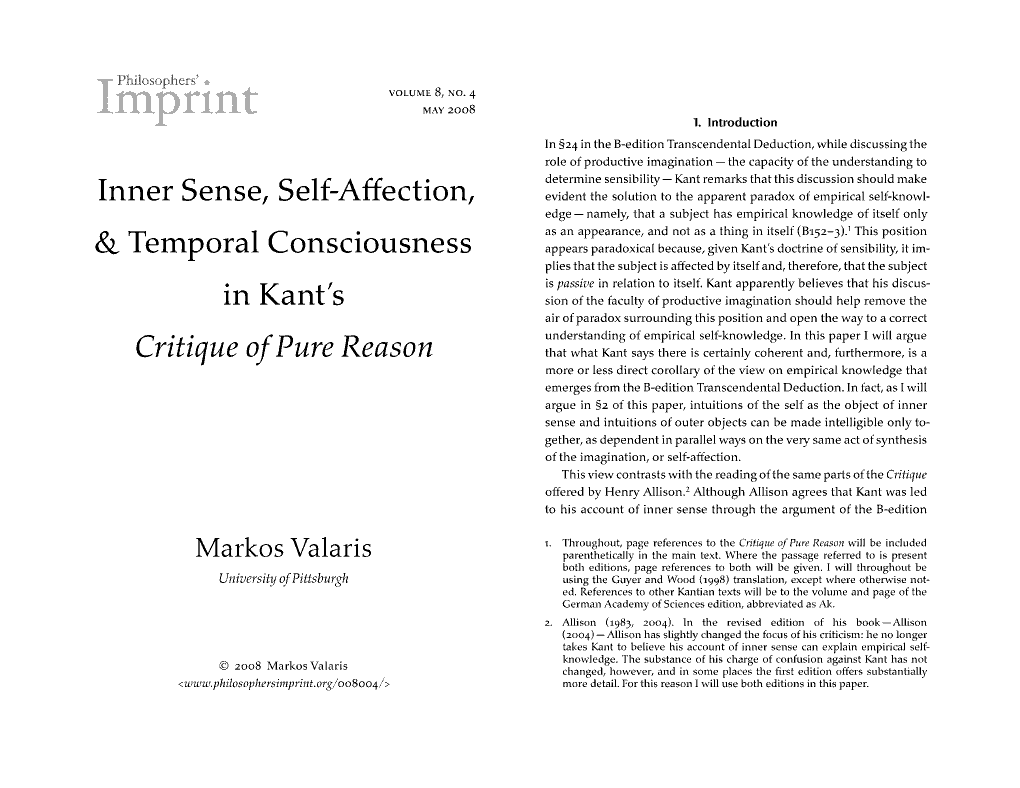Inner Sense, Self-Affection, and Temporal Consciousness in Kant's Critique of Pure Reason
Skip other details (including permanent urls, DOI, citation information): This work is licensed under a Creative Commons Attribution-NonCommercial-NoDerivatives 3.0 License. Please contact [email protected] to use this work in a way not covered by the license.
For more information, read Michigan Publishing's access and usage policy.
Abstract
In §24 of the Transcendental Deduction, Kant remarks that his account of the capacity of the understanding to spontaneously determine sensibility explains how empirical self-knowledge is possible through inner-sense. Although most commentators consider Kant's conception of empirical self-knowledge through inner sense to be either a failure or at least drastically under-developed, I argue that (just as Kant claims) his account of the capacity of the understanding to determine sensibility - the "productive imagination" - can ground an attractive account of self-knowledge. The account of inner sense I propose, however, may seem to conflict with some of Kant's views on time. I close the paper by arguing that the apparent conflict is not a fault specific to my account of inner sense, but rather indicative of a deeper tension, internal to Kant's views on time.



